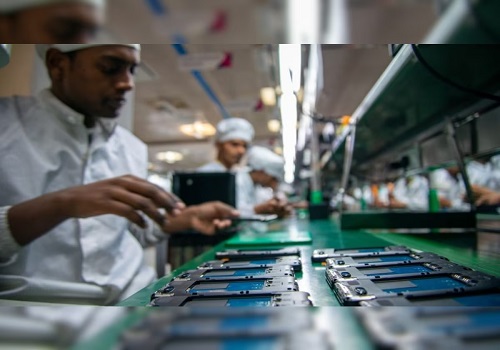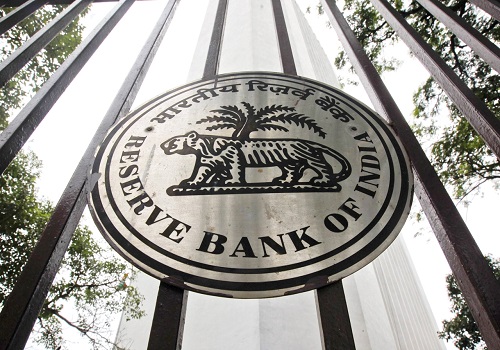OBSC Perfection coming with IPO to raise Rs 66.02 crore

OBSC Perfection
- OBSC Perfection is coming out with an initial public offering (IPO) of 66,02,400 equity shares in a price band Rs 95-100 per equity share.
- The issue will open on October 22, 2024 and will close on October 24, 2024.
- The shares will be listed on SME Platform of NSE.
- The face value of the share is Rs 10 and is priced 9.50 times of its face value on the lower side and 10.00 times on the higher side.
- Book running lead manager to the issue is Unistone Capital.
- Compliance Officer for the issue is Abhishek Kumar Pandey.
Profile of the company
OBSC Perfection is a precision metal component manufacturer offering a diversified suite of precision engineering products which are high-quality engineered parts across end-user industries and geographies. It primarily caters to top original equipment manufacturers (OEMs) who ultimately supply various components and parts to top automotive manufacturing companies of India. In non-automotive sector, it caters to manufacturers of Defense, Marine & Telecommunication Infrastructure industries. At present, the company’s core expertise lies in serving the automotive industry i.e. supplying OEMs, however, it is actively expanding iys reach beyond automotive, leveraging its capabilities to develop a strong presence in defense, marine, and telecommunication infrastructure sectors. As a result of which, currently, majority of its business comes from auto industry and defense, marine, and telecommunication infrastructure sectors forms a small portion of its business. It largely supplies to its domestic customers, however, it has an international presence also through export sales.
The company operates out of four strategically located manufacturing facilities with three of its manufacturing facilities including its principal manufacturing facilities at Pune, Maharashtra, a prominent auto hub i.e. Unit I (principal manufacturing facility), Unit II, Unit IV and one at Chennai, Tamil Nadu, another major automotive centre. This strategic placement allows it to be close to its core customers - Original Equipment Manufacturers (OEMs) in the automotive industry. This proximity translates to several advantages, including streamlined logistics, faster response times, and deeper collaboration with its valued clients, etc.
The company manufactures a wide range of precision metal components including but not limited to cut blanks, shafts / spline shafts, torsion rods, piston rods, rack bar semi-finished, pinion, drive shafts, gear shifters, cable end fittings, sensor boss, sleeves, push plate, hubs, housing - brass and aluminium, fork bolt, fasteners, connectors, ball pin, ball pin housing, flange, male female ring, dozing adapter, housing for a diversified base of customers. Moreover, the company has a product portfolio of 24 products. Further, it has a strong in-house presence across machining, turning, fabrication, and assembly which allows it to handle a wider range of component complexity and become a one-stop shop for its customers across various industries for these requirements. It has a seamless integration between these processes. This allows for efficient flow of components through the production line thereby minimizing delays and rework.
Proceed is being used for:
- Funding capital expenditure requirements towards purchase of machinery for its existing manufacturing facility (Unit III) at Mappedu Village, Sriperumbudhur Taluka-Mappedu, Thiruvallur, Tamil Nadu. (Proposed Expansion at Unit III)
- Funding capital expenditure requirements towards purchase of machinery for its existing manufacturing facility (Unit IV) at Nighoje, Near Hotel Maha Laxmi and Mess, Nighoje, Chakan, Taluka-Khed, Pune, Maharashtra. (Proposed Expansion at Unit IV)
- Funding working capital requirements of the company
- General corporate purposes
Industry Overview
India has become the fastest-growing economy in the world in recent years. This fast growth, coupled with rising incomes, a boost in infrastructure spending and increased manufacturing incentives, has accelerated the automobile industry. The two-wheeler segment dominated the automobile industry because of the Indian middle class, with automobile sales standing at 23.85 million units in FY24. Significant demand for automobiles also led to the emergence of more original equipment and auto components manufacturers. As a result, India developed expertise in automobiles and auto components, which helped boost international demand for Indian automobiles and auto components. Hence, the Indian automobile industry has a considerable impact on the auto component industry. India’s auto component industry is an important sector driving macroeconomic growth and employment. The industry comprises players of all sizes, from large corporations to micro entities, spread across clusters throughout the country. The auto components industry accounted for 2.3% of India’s GDP and provided direct employment to more than 1.5 million people. By 2026, the automobile component sector will contribute 5-7% of India's GDP. The Automotive Mission Plan (2016-26) projects to provide direct incremental employment to 3.2 million by 2026.
The automobile component industry turnover stood at Rs 6.14 lakh crore ($74.1 billion) during FY24, registering a revenue growth of 9.8% as compared to FY23. Domestic OEM supplies contributed 54% to the industry’s turnover, followed by domestic aftermarket (10%) and exports (18%), in FY24.The component sales to OEMs in the domestic market grew by 8.9% to Rs. 5.18 lakh crore ($62.4 billion). The aftermarket for auto components grew by 10.0% during FY24 reaching Rs. 9.38 lakh crore ($11.3 billion). Over FY16 to FY24, the automotive components industry registered a CAGR of 8.63%, reaching $74.1 billion in FY24. As per the Automobile Component Manufacturers Association (ACMA) forecast, auto component exports from India are expected to reach $30 billion by 2026. The auto component industry is projected to record $200 billion in revenue by 2026. Strong international demand and resurgence in the local original equipment and aftermarket segments are predicted to help the auto component industry grow 20-23% in FY22.
The rapidly globalising world is creating newer opportunities for the transportation industry, especially while shifting towards electric, electronic and hybrid cars, which are deemed more efficient, safe and reliable modes of transportation. Over the next decade, this will lead to newer verticals and opportunities for auto component manufacturers. To help them adjust to the shifting dynamics of the sector, the Indian government has already offered various production incentives. India is also investing heavily in electric car infrastructure. Manufacturers in this industry are focusing on developing sustainable solutions, lightweight materials, and efficient production processes to meet the evolving needs of the automotive sector. Additionally, there is a growing emphasis on digitalization and data analytics to optimize operations and enhance product performance. By FY28, the Indian auto industry aims to invest $7 billion (Rs 58,000 crore) to boost localization of advanced components like electric motors and automatic transmissions, reducing imports and leveraging ‘China Plus One’ trend.
Pros and strengths
Manufacturing facilities situated at two of the most prominent auto hubs of India: Being located in key auto hubs of India like Pune and Chennai puts it closer to its OEM clients. This allows for quicker communication, faster order fulfillment, and more efficient problem-solving if any issues arise during production. Also, physical proximity fosters closer relationships with OEMs. This enables more frequent collaboration, better understanding of their specific needs, and the ability to build stronger partnerships. This also allows it to recruit qualified personnel for machining, fabrication, assembly, and other areas of its operation. The concentration of auto companies and suppliers in these regions fosters a strong knowledge base within the workforce. This benefits the company by having employees who are familiar with industry best practices and specific automotive manufacturing requirements.
Strategic advantage through streamlined supply chain: The company enjoys a significant advantage through the strategic co-location of its manufacturing facility with Omega Bright Steel & Components Private Limited, a promoter group entity and its primary supplier of High / Low Carbon steel bright bars, which constitutes major portion of its total raw material consumption. This proximity with its key raw material supplier translates into several key benefits such as having direct access to a trusted supplier within the promoter group ensures consistent supply of high-quality High / Low Carbon steel bright bars. Various quality control measures implemented by Omega Bright Steel & Components Private Limited translate directly to the quality of its finished products. Its close relationship with Omega Bright Steel & Components Private Limited allows it to secure the most competitive pricing on high-quality High / Low Carbon steel bright bars in the industry. Elimination of middlemen and streamlined logistics contribute to significant cost savings.
Consistent track record of growth and financial performance: The company has built its business organically and has demonstrated consistent growth in terms of revenues and profitability. The company’s focus on operational and functional excellence has contributed to its track record of healthy financial performance. For the period ended August 31,2024 and Fiscals 2024, 2023 and 2022, it generated revenue from operations of Rs 5,652.60 lakh, Rs 11,503.03 lakh, Rs 9,635.85 lakh, and Rs 5,643.41 lakh respectively, as per its Restated Financial Statements. Its revenue from operations have grown from Rs 5,643.41 lakh in FY 2022 to Rs 11,503.03 lakh in FY 2024, registering a CAGR of 42.64% in last three financial years. The company’s operating EBITDA have grown from Rs 708.39 lakh in FY 2022 to Rs 2,076.10 lakh in FY 2024, registering a CAGR of 71.19% in last three financial years. The company’s profit after tax has grown from Rs 360.11 lakh in FY 2022 to Rs 1,221.21 lakh in FY 2024, registering a CAGR of 84.15% in last three financial years.
Risks and concerns
Maximum revenue comes from top 10 customers: The company is engaged in business of precision engineering components. It primarily caters to top OEMs who ultimately supply various components and parts to top automotive manufacturing companies of India. It isdependent upon its long-term customers, some of whom have been associated with the company since incorporation. It derives a significant portion of its revenue from its top 10 customers (excluding customers’ contributing to revenue from scrap sales). Its top 10 customers contributed 57.13%, 65.54%, 60.94% and 61.10% in the period ended August 31, 2024, and the Fiscal 2024, 2023 and 2022 respectively. Loss of all or a substantial portion of sales due to loss of business relationship from any of its top 10 customers, could have an adverse impact on its business, results of operations, financial condition and cash flows.
Significant portion of its domestic sales are derived from the West zone: The company has historically derived a significant portion of its revenue from sales in the West and South zone. For the period ended August 31, 2024 and for the Fiscal 2024, 2023 and 2022 the revenue generated from sales in West and South zone cumulatively represented 97.47% and 95.60%, 93.63% & 95.13% of its revenue from domestic sales. Accordingly, any materially adverse social, political or economic development, natural calamities, civil disruptions, regulatory developments or changes in the policies of the state or local government in this region could adversely affect its manufacturing and distribution activities, result in modification of its business strategy or require it to incur significant capital expenditure, which will in turn have a material adverse effect on its business, financial condition, results of operations, and cash flows.
No long-term agreements with its suppliers for raw material: The company depends on external suppliers for majority of the raw materials required and typically purchase raw materials on a purchase order basis and place such orders with them in advance based on its requirements. As a result, the success of its business is significantly dependent on maintaining good relationships with its raw material suppliers. The absence of long-term supply contracts subjects it to risks such as price volatility caused by various factors viz. commodity market fluctuations, currency fluctuations, climatic and environmental conditions, transportation cost, changes in domestic as well as international government policies, regulatory changes and trade sanctions. There can be no assurance that in future it will be able to procure the required quantities and quality of raw materials commensurate with its requirements. There can also be no assurance that a particular supplier will continue to supply it with raw materials in the future.
Outlook
OBSC Perfection is a precision metal components manufacturer offering a wide range of precision engineering products, which are high-quality engineered parts for various end-user industries and regions. The company caters to OEMs who ultimately supply various components and parts to leading automobile manufacturers in India. In the non-automotive sector, the company supplies manufacturers in the defense, marine, and telecom infrastructure sectors. On the concern side, the company’s business largely depends upon its top 10 customers contributed 57.13%, 65.54%, 60.94% and 61.10% in the period ended August 31, 2024, and the Fiscal 2024, 2023 and 2022 respectively. The loss of any of these customers could have a material adverse effect on its business, financial condition, results of operations and cash flows. Moreover, the company’s business is dependent on the performance of the automotive industry. Economic cyclicality coupled with reduced demand in these other industries, in India or globally, could adversely affect its business, results of operations and financial condition.
The company is coming out with a maiden IPO of 66,02,400 equity shares of Rs 10 each. The issue has been offered in a price band of Rs 95-100 per equity share. The aggregate size of the offer is around Rs 62.72 crore to Rs 66.02 crore based on lower and upper price band respectively. On performance front, the company’s revenue from operations for the period ended August 31, 2024, is Rs 5,652.60 lakh, accounting for 99.17% of the total income. This was from the sales from Automotive segment of Rs 5,226.38 lakh, Defense segment of Rs 75.36 lakh, Marine segment of Rs 344.50 lakh and Telecommunication segment of Rs 6.36 lakh. Moreover, profit after tax for the period ended August 31, 2024, amounted to Rs 603.05 lakh constituting 10.58% of total income.
The company now intends to establish a manufacturing facility in Sanand, Gujarat, a prominent auto hub in India. This strategic expansion complements its existing operations in Pune and Chennai, who are also in the auto hub of India, further solidifying its presence within India’s thriving automotive landscape. A key driver for this expansion is a nomination letter received by it from a leading automotive Original Equipment Manufacturer (OEM). This implies that as and when its manufacturing facility is ready, it can immediately commence the commercial operations. Further, Sanand’s strategic location offers distinct advantages. Its close proximity to major ports like Dahej, Kandla, Hazira, Mundra, and JNPT facilitates efficient logistics and exports. Additionally, Gujarat's reputation for pro-active governance and reliable power supply creates a highly favorable environment for automotive manufacturing.




















